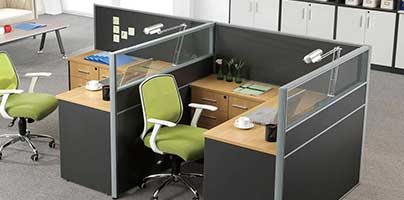Chennai, NFAPost: Due to work from home now, an employee saves nearly 1.47 hours of travel time every day. This translates to time worth 44 additional working days in a year. About 60% of employees usually spend more than an hour in commute to and from the office, says a survey.
The country’s largest home-grown flex workspace provider Awfis has launched Awfis Remote Working Report, to offer a glimpse into the changing needs and preferences of the urban Indian workforce concerning their place of work post the onset of COVID-19 and nationwide lockdown.
The online survey brings to the forefront various challenges and opportunities employees have faced and identified with this new mode of operation. Additionally, the survey also focuses on employees’ willingness and ability to continue to work remotely from their home as well as infrastructural requirements to aid them to operate effectively, amongst others. The remote working report also puts forth some vital aspects that organisations would need to consider while devising their long-term remote working strategies.
About 74% of the respondents are willing to work remotely, and 80% pointed out that their job roles can be performed from a remote environment. About 29% of respondents reported saving Rs 3,000-5,000 monthly as a result of working from home, which was otherwise spent on commuting, clothing, food, etc.
The survey was conducted over a period of two months (June and July 2020) across seven metros in India, and analysed inputs from 1,000 employees across diverse industries.
The survey adds that the positive sentiment to work from remote locations can be attributed to factors like significant cost savings, considerable time savings, better time management and self-discipline.
KEY CHALLENGES:
Isolation – 27% of the employees feel they lack opportunities for engaging with colleagues and developing strong networks. Inability to meet and collaborate might impact employees’ creativity.
Work-life balance – 43% of employees report the inability to maintain their work-life balance while working remotely. Now that the lines between home and work are blurring, companies need to create policies that describe clear demarcations between the two, to make remote work sustainable in the long run.
Lack of adequate space and equipment – While 47% of the employees’ surveyed report a lack of comfortable desk and chair, 71% feel that they will be successful in working from home if they have a dedicated area to work from.
The survey says a hybrid model, a combination of virtual and physical environments, will come to define the future of how India works thereby giving rise to the emergence of distributed workspaces that will cut across physical headquarters, satellite offices and homes pan-India.
For instance, a company with a strength of 100 employees will follow 60/30/10 split for deciding the work location (work from home, work near home or work from the main office) of its employees depending on work profiles, work style and individual preferences. The coworking sector is poised to become 20% of the total CRE (Commercial Real Estate) market in the next 2-3 years, as compared to the current 5%.
Awfis CEO & Founder Amit Ramani said, “The current situation has given way to a new style of working –Work from Anywhere. Organisations and individuals are gradually adjusting to this new normal. To be effective, organisations across diverse industries need to understand the changing requirements and challenges faced by their employees and provide them with required resources.”
“By means of this survey, we were able to deconstruct the employee perspective and share critical insights that would help managers and organisations in devising sustainable remote working strategies. As a flex workspace provider, we are partnering with companies to offer solutions for unique needs and requirements of employees and organisations. We strongly feel that as part of business continuity planning (BCP), increasingly companies are setting up multiple satellite offices at various locations to de-densify the headquarters, and to enable their workforce to work near home,” he added.
In addition to its flex workspaces, the company has recently introduced Awfis@Home to provide the physical infrastructure, connectivity and collaboration tools; everything that’s required to operate seamlessly within the boundaries of one’s home or a non-office location.
Awfis currently has 67 centres and 35,000 seats across 10 cities. Awfis has a total member base of over 1,500 companies and 28,000 professionals ranging from India’s coolest startups to Fortune 500 companies. Awfis curates over 500 exclusive events, workshops and experiences every year for its community members. Under its Rewards Program, Awfis has curated over 100 strategic partnerships that provide its community members seamless access to leading service providers.





